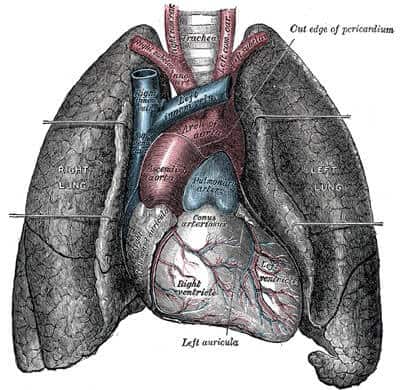Boosting a key immune process called autophagy with interferon gamma (IFN-γ) could help clear a lethal bacterial infection in cystic fibrosis, a new study suggests. The work, led by a team in The Research Institute at Nationwide Children’s Hospitaland published in PLoS One in May, offers new information about immune function in patients with the disease.
Cystic fibrosis, CF for short, is caused by a malfunction in the CFTR gene, which is responsible for transporting chloride and water across cell membranes. In people with the disease, cells that line the passageways of the lungs, pancreas and other organs produce unusually thick and sticky mucus that clogs the airways — creating an ideal environment for pathogens such as Burkholderia cenocepacia.
A member of the Burkholderia cepacia group of bacteria, B. cenocepacia is commonly found in soil and water and in most cases poses no health threat. However, in 2 to 5 percent of patients with CF, the bacterium causes an infection that can spread to the bloodstream, triggering widespread inflammation called sepsis that can be fatal. B. cenocepacia doesn’t respond to most antibiotics, leaving physicians with few weapons to fight it. And even if their infection isn’t severe, patients with B. cenocepacia are considered poor candidates for lung transplant, which many advanced CF patients require to survive.
“B. cenocepacia is multi-drug resistant, so usually when patients are ill, they are on a cocktail of antibiotics and we’re hoping for a synergy of effect,” said Benjamin T. Kopp, MD, senior author of the study and a principal investigator for theCenter for Microbial Pathogenesis and a pulmonologist at Nationwide Children’s.
Further complicating these infections, he adds, is that B. cenocepacia can replicate inside macrophages, the immune system’s first line of defense against such pathogens. “It can avoid the host immune response,” he said, “and that’s where something like IFN-γ might work better than traditional antibiotics.”
Produced by the IFNG gene in humans, IFN-γ is a cytokine active in the immune system. Earlier studies suggested that the molecule stimulates autophagy, a natural process in which proteins and other cell materials are degraded and disposed. In many diseases, including CF, autophagy is inhibited. Dr. Kopp and his colleagues wanted to see if treatment with IFN-γmight activate autophagy, allowing the body’s immune system to battle B. cenocepacia.
Researchers isolated macrophages from patients with and without CF and infected them with B. cenocepacia in cell cultures. When they analyzed the samples, they found that the cells from CF patients had decreased levels of IFN-γ. They then treated the CF macrophages with synthetic IFN-γ and found that autophagy was enhanced and the bacterial infection waned.
“The goal of the study was to show if you could stimulate autophagy, you could help clear pathogens better,” said Dr. Kopp, who also is an assistant professor of pediatrics at The Ohio State University College of Medicine. “These findings clearly suggest that is indeed the case.”
The study is the first in a series by Dr. Kopp and colleagues to look at autophagy mediation, a growing area of interest among clinician scientists who study CF and other disorders that affect the immune system. In CF, the need for new treatments is great. Many of the infections that plague this patient population are resistant to available drugs and some of the drugs that do work have side effects that leave many physicians unwilling to prescribe them.
“As we’re learning more about CF, we’re finding more and more issues with the immune system and not just the typical clearance of mucus,” Dr. Kopp said. “Now we’re discovering that there is this initial response, of which autophagy is a part, in which the immune system is not clearing the bacteria and there are some continued deficits in that in CF patients.”
According to the Centers for Disease Control and Prevention, B. cenocepacia infections have also been reported in hospitalized patients with compromised immune systems. So, Dr. Kopp added, the findings could be of interest to clinician-scientists in areas other than cystic fibrosis.


